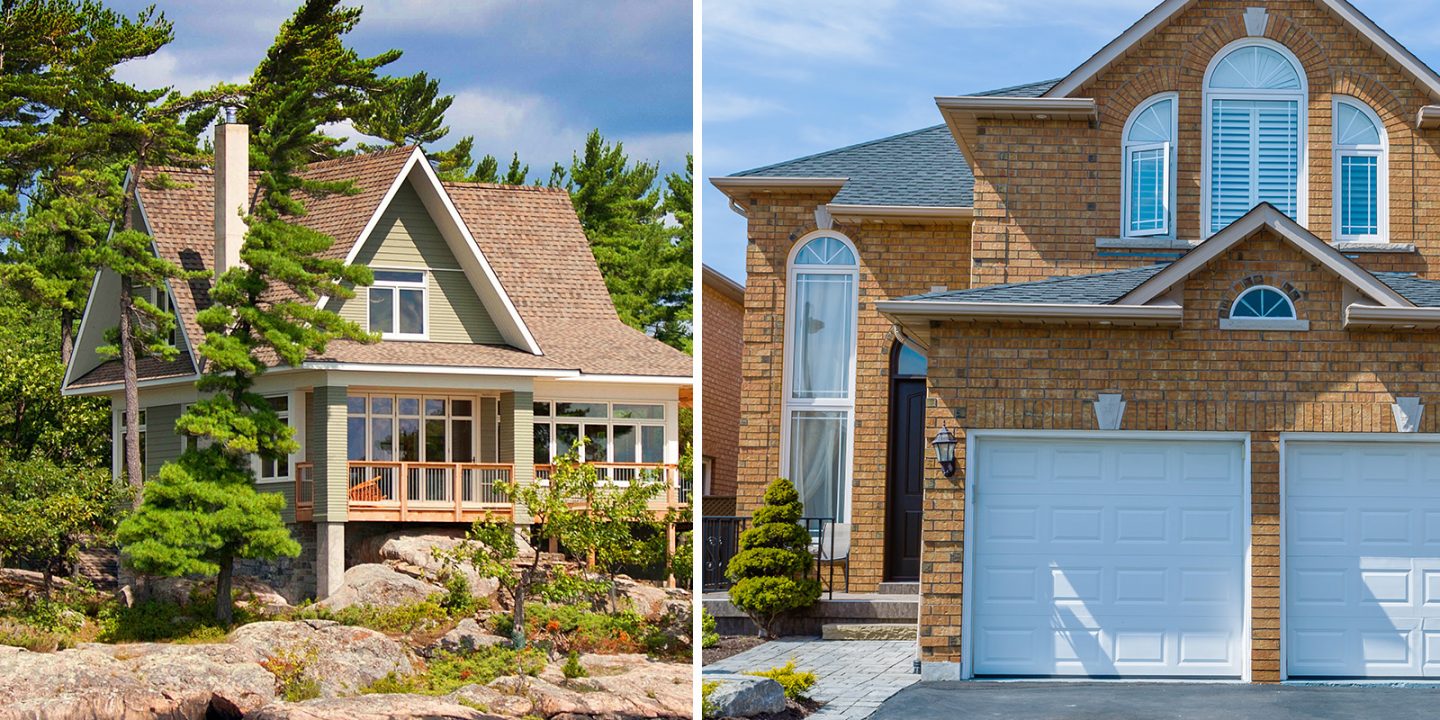
Buying a property is a significant financial and emotional investment. Whether you’re in the market for a primary residence or a charming getaway, the process can vary considerably based on the type of property you’re looking to purchase. Choosing to invest in a property is a significant decision that involves careful consideration, planning, and, often, a substantial financial commitment. When it comes to real estate, the type of property you choose can greatly influence the buying process. In this blog, we will explore the differences in the buying process between a house and a cottage, two popular options that offer distinct lifestyles and experiences.
Whether you choose to buy a house or a cottage, the process is influenced by numerous factors, including location, budget, market dynamics, inspection and maintenance requirements, financing, and insurance. Both options offer unique lifestyles and experiences, and the choice ultimately depends on your personal preferences and priorities. Consider what you value most in a property and how it aligns with your long-term and short-term goals. Regardless of your decision, a well-informed buying process is the key to making a successful and satisfying investment in real estate.
Location and Purpose: The first and most obvious difference when buying a house versus a cottage is the location and purpose of the property. Houses are typically located in urban or suburban areas, closer to schools, workplaces, and essential amenities. They serve as primary residences and offer a stable, long-term living environment. On the other hand, cottages are often situated in more rural or scenic locations, away from the hustle and bustle of city life. Cottages are primarily used as vacation homes or weekend getaways, providing a retreat from the daily grind.
Budget Considerations: The budget for buying a house and a cottage can vary significantly. Houses in urban areas tend to be more expensive due to the prime location, access to infrastructure, and typically larger living spaces. Cottages, in contrast, can be more affordable, offering a rustic, simpler lifestyle. However, waterfront or highly sought-after cottage properties can also come with a hefty price tag.
Zoning and Regulations: Zoning regulations and property restrictions can vary significantly between houses and cottages. Local zoning laws may limit how you can use and modify a cottage, especially if it’s in a conservation area or near a body of water. It’s crucial to be aware of these regulations and to seek legal advice to understand what you can and cannot do with the property.
Market Dynamics: The real estate market for houses and cottages operates differently. Urban houses are often subject to market fluctuations, influenced by economic conditions, employment opportunities, and demand. In contrast, the cottage market may be less volatile and driven more by seasonal and recreational factors. Cottages near popular tourist destinations may experience demand spikes during certain times of the year.
Property Inspection and Maintenance: When buying a house, a thorough property inspection is essential due to the higher standards and regulations in urban areas. Potential buyers need to assess structural integrity, plumbing, electrical systems, and compliance with local building codes. Cottages, although they also require inspections, may not be subject to the same rigorous standards, as they are often considered secondary properties. Maintenance requirements for cottages can also differ, with seasonal upkeep like winterizing or opening up for the summer.
Financing and Insurance: The financing and insurance processes for houses and cottages can vary. Traditional mortgages are often used to purchase houses, with lenders offering various options tailored to different financial situations. In contrast, cottages may require specialized financing, such as cottage mortgages or lines of credit, as they are considered secondary properties. Insurance for cottages may include coverage for seasonal or recreational use, while urban house insurance covers primary residences.
Lifestyle and Personal Preferences: Ultimately, the buying process for a house or a cottage comes down to individual lifestyle preferences and priorities. Houses are ideal for those seeking stability, access to urban amenities, and a permanent place to call home. Cottages are perfect for individuals or families looking to escape the city, enjoy nature, and create cherished memories during vacations and weekends.
Rental Income Potential: Cottages often come with the potential for rental income during the times you’re not using them. Many people choose to rent out their cottages to vacationers, which can help offset the cost of ownership. This is less common with primary residences, although some homeowners do rent out rooms or properties through platforms like Airbnb.
The buying process for a house and a cottage is influenced by various factors, including location, purpose, budget, financing, inspections, zoning regulations, and income potential. It’s essential to carefully consider these differences and evaluate your priorities and goals before making a decision. Both houses and cottages offer unique advantages and experiences, and the choice ultimately depends on your lifestyle and what you’re looking to achieve with your real estate investment. Regardless of your choice, thorough research and professional guidance will be invaluable in ensuring a smooth buying process and a successful property purchase.







